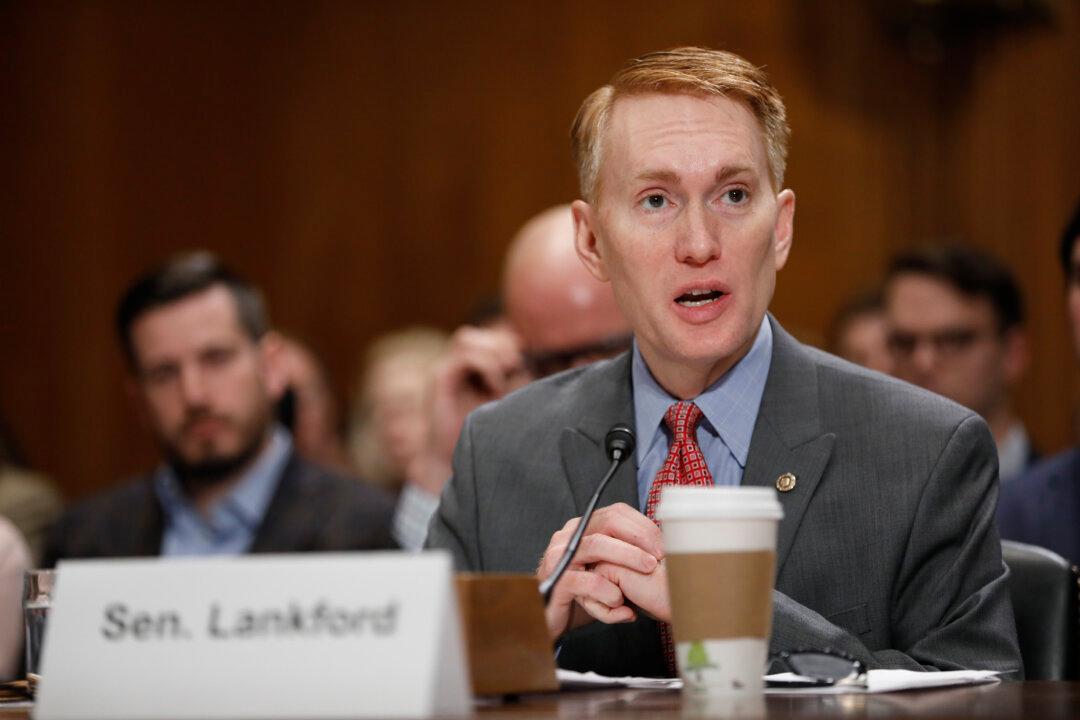WASHINGTON—Sen. James Lankford (R-Okla.) and his Republican colleagues are sick and tired of Democrats constantly delaying confirmation of President Donald Trump’s judicial and executive appointments.
And they aren’t going to take it anymore. Maybe.


WASHINGTON—Sen. James Lankford (R-Okla.) and his Republican colleagues are sick and tired of Democrats constantly delaying confirmation of President Donald Trump’s judicial and executive appointments.
And they aren’t going to take it anymore. Maybe.